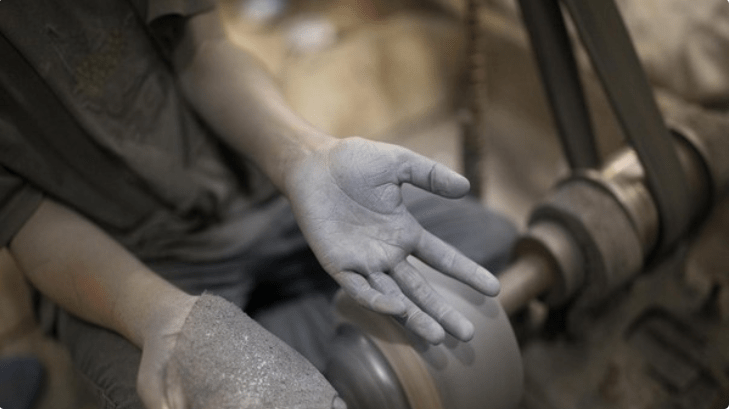
Child labour continues to remain a major social problem in Pakistan as one in four households employs children, with many of them exposed to hazardous conditions. Pakistan has ratified international conventions to outlaw child labour.
However, enforcement remains poor thanks to corruption, bureaucratic apathy, lack of education and awareness, and medieval socio-religious norms.
About 3.3 million children in Pakistan are robbed of careless childhoods as they are forced to work as domestic help, in handloom industries and even brick kilns and hazardous mines.
They are deprived of education and are subjected to various forms of violence that include sexual exploitation and trafficking, said UNICEF. However, in reality, the number of child labour in Pakistan is over 12 million, according to the local non-profit Society for the Protection of the Rights of the Child.
Poverty, income inequality, and stringent social and religious norms have accelerated child labour, which has kept millions of children away from basic rights such as education and personal development. “The first impact of the children labour is that it deprives a child from acquiring education.
The years which otherwise could have been spent in the school are spent in the child labour,” reads a research paper published in Pakistan Social Sciences Review. The second impact is the growing income disparity.
Child labour not only violates international conventions but negates the protection and freedom offered by the constitution of Pakistan as well.And the Islamabad government’s apathy has only exacerbated the problem of child labour.
“The lack of robust social safety nets exacerbates the situation. The failure to address these (healthcare and welfare) underlying socioeconomic issues perpetuates the cycle of child labour and poverty,” opined Pakistani columnist Zaimal Arif.
While child labour is common across Pakistan, the situation is grim in Khyber Pakhtunkhwa province, as over 11 percent of children are forced to work for money. The situation remains grim despite the protests by people and calls for action.
Shohbatpur resident Waseem Murad said “Prime Minister Shehbaz Sharif acknowledged the severity of the issue and pledged to tackle it with determination .Despite the urgency of the situation, tangible actions to combat child labour remain scarce.”
UNICEF has expressed concerns over the Islamabad government’s lax and insensitive response to the problem even as it ratified the Convention on the Rights of the Child (CRC) 30 years ago.
“Government response is impeded by the significant dearth of official data relating to all forms of exploitation of children.No public coordinated child protection case management and referral system, as aligned with international standards, has been established,” it said.
Pakistan’s wealthy people not just ignored the exploitation of children in the country but rather encouraged it, said Rafia Zakaria, an attorney and constitutional expert. “Educated and wealthy members of society, who otherwise espouse a great commitment to charity and to being good Muslims, regularly ignore the exploitation of these little girls, even though it takes place under their very noses every single day,” she said.
Zakaria said child labourers in Pakistan are forced to beg and work as babysitters in wealthy households, where they are subjected to inhuman torture.
A 10-year-old girl was raped and murdered by one such wealthy, influential landlord in a mansion where she worked as domestic help. “My daughter was subjected to the worst form of torture for many days by the Pirs of Ranipur and died due to multiple injuries,” said the deceased’s mother.
While most of such cases remained disclosed and unreported, civil society groups consolidated 140 cases of abuse, rape and murder of child domestic workers which were reported in news media.
“No other occupation in Pakistan has resulted in the deaths of children more than child domestic labour,” reads a report prepared by government institutes and civil groups.
“The continuous disturbing reports of torture and murder of child domestic workers indicate the moral decay of the society and the failure of the state that allowed a powerful class to brutally torture and murder children belonging to the working class, poor and marginalised families.”






